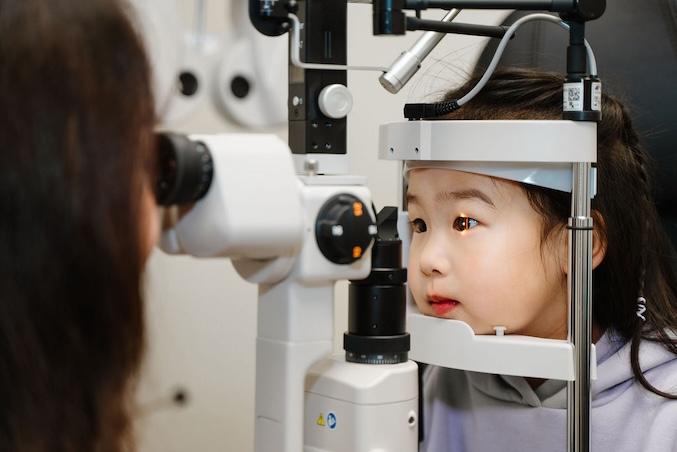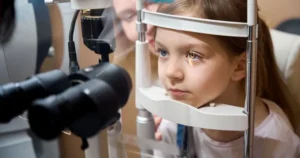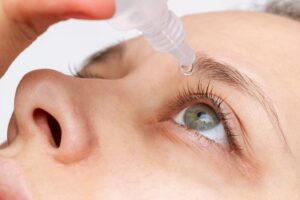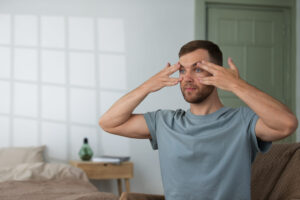In today’s digital age, screens are everywhere—from smartphones and laptops to TVs and tablets. With the average adult spending more than 7 hours a day in front of a screen, it’s no surprise that eye fatigue and sleep disturbances are common complaints. Enter blue light glasses: stylish, screen-friendly eyewear marketed to reduce eye strain, improve sleep, and protect vision. But are they truly effective, or just a trendy accessory?
To answer this question, we asked what the science says and consulted eye health professionals. Here’s what we found.
What Is Blue Light and Why Is It a Concern?
Blue light is a high-energy visible (HEV) light that is naturally emitted by the sun and artificially by screens and LED lighting. While blue light during the day helps regulate our sleep-wake cycle (circadian rhythm), overexposure—especially at night—can disrupt sleep and lead to digital eye strain.
Eye strain, also called Computer Vision Syndrome (CVS), is a group of eye and vision-related problems that result from prolonged screen time. Symptoms include:
- Dry eyes
- Blurred vision
- Headaches
- Neck and shoulder pain
Because blue light penetrates the eye more deeply than other visible light, concerns have been raised about potential long-term damage to the retina. However, research is still ongoing in this area.
Do Blue Light Glasses Really Work?
The verdict is mixed but leaning toward supportive—especially for reducing eye strain.
Many blue light glasses claim to block or filter out a portion of blue light emitted by digital devices. But do they live up to the hype?
Reduced Eye Strain
A growing body of research suggests that blue light glasses may help relieve symptoms of digital eye strain. A 2021 study published in Ophthalmic & Physiological Optics found that participants using blue light-blocking lenses reported slightly less eye fatigue after extended screen use compared to those who didn’t.
Eye expert opinion: Dr. Jennifer Lyerly, an optometrist and vision care expert, says, “Blue light glasses can be a helpful tool for people experiencing screen-induced eye discomfort. They won’t solve every issue, but they’re a low-risk addition to your eye care routine.”
Better Sleep Quality
One of the most cited benefits of blue light glasses is improved sleep. Because blue light affects melatonin production, using screens late at night can interfere with falling asleep.
A 2017 study from the University of Houston found that participants who wore blue light filtering glasses in the evening increased their nighttime melatonin levels by 58%, helping them fall asleep faster and enjoy deeper rest.
Pro tip: For the best results, wear your blue light glasses at least 1–2 hours before bedtime.
No Proven Long-Term Vision Protection
Despite marketing claims, there is currently no conclusive evidence that blue light from screens causes permanent eye damage or age-related macular degeneration (AMD).
The American Academy of Ophthalmology (AAO) states that digital eye strain is not caused by blue light alone and recommends practical solutions such as screen breaks and proper lighting over relying solely on blue light glasses.
Blue Light Glasses vs. Other Eye Protection Methods
Here’s a quick comparison to help you understand how blue light glasses stack up against other methods:
| Method | Benefits | Limitations |
|---|---|---|
| Blue Light Glasses | May reduce eye strain and improve sleep | Limited protection; no evidence of preventing long-term damage |
| 20-20-20 Rule (every 20 minutes, look at something 20 feet away for 20 seconds) | Reduces eye fatigue | Requires discipline and reminders |
| Anti-Reflective Screen Filters | Reduce glare and improve comfort | May not block all blue light |
| Screen Settings/Night Mode | Warmer tones reduce blue light | Color changes can affect viewing experience |
| Proper Lighting & Posture | Improves overall comfort and reduces fatigue | Doesn’t block blue light |
FAQs About Blue Light Glasses
1. Are blue light glasses safe to wear all day?
Yes. Blue light glasses are safe for all-day use. They don’t alter your vision, and there are no known side effects for healthy users.
2. Do kids benefit from blue light glasses?
Children who spend significant time on tablets or computers may benefit from reduced screen fatigue and improved sleep with blue light glasses, but parents should consult an eye care provider for personalized advice.
3. How can I tell if my blue light glasses are working?
You may notice less eye fatigue, fewer headaches, or better sleep. Some lenses slightly tint the screen warmer or have a subtle yellow hue, indicating light filtering.
4. Should I still take screen breaks if I wear blue light glasses?
Absolutely. Glasses help, but they don’t replace good screen habits. Follow the 20-20-20 rule and maintain proper posture and lighting.
5. Can I use software instead of glasses to block blue light?
Yes. Apps like f.lux or built-in “Night Shift” features on devices can reduce blue light. Using these alongside glasses can enhance comfort even more.
Final Thoughts
If you’re spending long hours on digital devices and experiencing symptoms like tired eyes, headaches, or poor sleep, blue light glasses could offer relief. While they’re not a cure-all or a guarantee of long-term eye protection, they are a practical, non-invasive addition to your screen-time routine.
Remember: the best approach to digital eye strain is a combination of strategies—glasses, breaks, proper lighting, and healthy screen habits.
Before making a purchase, look for glasses with verified blue light filtering properties and consult an optometrist if you have ongoing vision concerns.
Credible References:
- American Academy of Ophthalmology – Blue Light and Your Eyes
- Centers for Disease Control and Prevention (CDC) – Sleep and Sleep Disorders
- National Institutes of Health – Blue Light Exposure Study
Disclaimer
Interested in trying blue light glasses? Start with a reputable brand and monitor how your eyes and sleep respond. Your vision is worth protecting—whether through lenses, lighting, or lifestyle changes.
Note: Always seek advice from a qualified eye care professional if you experience ongoing discomfort or vision problems.




